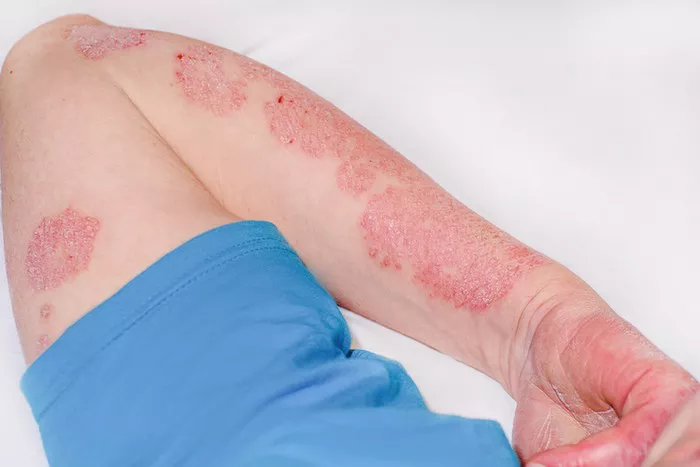Hives, medically known as urticaria, are a common skin condition characterized by red, swollen welts or bumps on the skin that often itch intensely. While hives are typically caused by allergic reactions, they can also be triggered by other factors such as stress, infections, and certain medications. One question that often arises is whether hives can be transmitted from one person to another. Understanding the contagious nature of hives is important for proper management and prevention of this bothersome condition.
What are Hives?
Before delving into whether hives can spread from person to person, it is essential to understand what hives are and what causes them. Hives are the result of the body’s immune response to various triggers. When the immune system detects a substance it perceives as harmful, it releases histamine and other chemicals into the bloodstream. These chemicals cause the small blood vessels under the skin to leak, leading to the characteristic redness, swelling, and itching associated with hives.
Common Causes of Hives
Hives can be triggered by a wide range of factors, including:
1. Allergens: Common allergens that can trigger hives include certain foods (such as nuts, shellfish, and eggs), insect stings, pollen, pet dander, and medications (such as antibiotics and aspirin).
2. Infections: Viral or bacterial infections, such as the common cold or strep throat, can sometimes lead to hives.
3. Physical Stimuli: Exposure to physical stimuli such as heat, cold, pressure, or sunlight can trigger hives in some individuals.
4. Stress: Emotional stress or anxiety can exacerbate hives or even be a primary trigger in some cases.
5. Underlying Health Conditions: Certain underlying health conditions, such as autoimmune disorders or thyroid problems, may predispose individuals to developing hives.
Understanding Contagiousness
When discussing whether hives are contagious, it’s important to distinguish between two concepts: contagiousness and transmission. Contagiousness refers to the ability of a condition to spread from one person to another, whereas transmission refers to the actual mechanism by which the condition spreads.
Are Hives Contagious?
In general, hives themselves are not contagious. Unlike infectious diseases caused by bacteria or viruses, hives do not result from the transmission of pathogens from one person to another. Instead, they are an immune-mediated reaction to various triggers, as discussed earlier.
Transmission of Hives
While hives are not contagious in the traditional sense, there are instances where the triggers that cause hives in one person may also affect others. For example:
1. Allergens: If an individual develops hives due to an allergic reaction to a particular substance, such as a food allergen or insect sting, others who are exposed to the same allergen may also experience a reaction if they are allergic to it. However, this is not because hives are contagious but rather because they share a common trigger.
2. Infections: In some cases, hives can be triggered by infections. If the infection is contagious and spreads from one person to another, hives may develop in multiple individuals as a result of their immune response to the infection. Again, it is not the hives themselves that are contagious but rather the underlying infection.
Preventing the Spread of Hives
While hives are not contagious, individuals who experience hives should take steps to prevent the spread of any underlying triggers that may affect others. Some preventive measures include:
1. Identifying Triggers: Work with a healthcare professional to identify and avoid triggers that may cause hives, such as certain foods, medications, or environmental factors.
2. Practice Good Hygiene: If hives are triggered by an infectious agent, such as a virus or bacteria, practicing good hygiene can help prevent the spread of the infection to others. This includes frequent handwashing, covering coughs and sneezes, and avoiding close contact with individuals who are sick.
3. Seek Medical Attention: If hives are accompanied by symptoms of an underlying infection, such as fever or sore throat, seek medical attention promptly to receive appropriate treatment and prevent the spread of the infection.
4. Educate Others: If you know that certain substances or situations trigger your hives, educate those around you, such as family members, friends, or coworkers, to help them understand how they can support you in avoiding these triggers.
Conclusion
In conclusion, hives themselves are not contagious, as they result from an immune response to various triggers rather than the transmission of pathogens from one person to another. However, the triggers that cause hives in one individual may also affect others, leading to a similar reaction. By understanding the triggers that can cause hives and taking preventive measures to avoid them, individuals can effectively manage their condition and minimize the risk of transmission to others. If you experience recurrent or severe hives, consult with a healthcare professional for proper diagnosis and management.

























